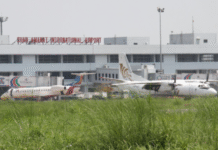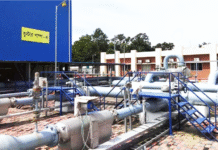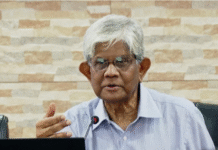
Tannery owners want the market to determine the prices of raw hide, breaking from the tradition of prices being jointly fixed by them and the government.
They have cited falling international prices, slump in demand, closure of leather goods factories in importing countries, and a multiplicity of taxes as reasons for their latest stance.
But small hide traders fear the tannery owners would influence market prices since they are the main buyers of rawhide.
Tannery owners and the government will hold talks on Sept 30 to decide on this year’s price-fixing mechanism.
As rawhide supply peaks during Eid-Ul-Azha, banks lend huge sums to tannery owners. Bangladesh Tanners Association (BTA) told bdnews24.com that this year tannery owners had borrowed around Tk 4 billion to purchase hides.
BTA Chairman Md Shahin Ahmed told bdnews24.com, “This year we want the market to set the price. International market is yet to recover from recession. Rawhide price is falling in the international market.

File Photo
Moreover, when the price is high, Western fashion houses reduce the use of leather in their products. That leaves us with piles of unsold hides.”
He said many leather goods factories in China and South Korea had been shut down in recent months. Ahmed also complained about a host of taxes they had to pay.
He, however, admitted that the fixing of prices by the market could hurt small and seasonal traders.
Last year, the government had fixed prices of rawhide and skin. Tanners bought cow hide at Tk85-90 per square foot in Dhaka and at Tk 75-80 per square foot in rest of the country.
Meanwhile, the price of goat hide was fixed at Tk50-55 per square foot and that of Baqra goat at Tk 40-45 per square foot.
Price of buffalo hide was set at Tk 40-45 per square foot.
But government had let the market determine rawhide prices in 2012.
But changing hide price in the international market do not seem to support the BTA claim. According to the IMF’s monthly commodity reports, hide prices, which fell in April, has been rising since August.
Recent media reports said that borrowings by tannery owners caused a sudden rise in the call money market interest rate. Bankers, however, see no link between the two. The rise in call money rate is normal ahead of major festivals, they say, adding that tanners’ borrowing is not the sole reason.
bdnews24.com contacted the Head of Treasury of Mutual Trust Bank, Shamsul Islam, to know what is pushing up the call money market rate. He said inter-bank lending and borrowing swell ahead of major festivals.
“On an average, transaction of Tk 50 or 60 billion takes place daily at call money market. But recently, it has reached to Tk 80 billion. Before the major festivals people and businessmen prefer to hold lots of cash. Tk 4 billion is a small portion of this daily transaction.”
This year, government has planned to export $ 620.50 million worth of leather and leather goods.
Source: Bd news24









